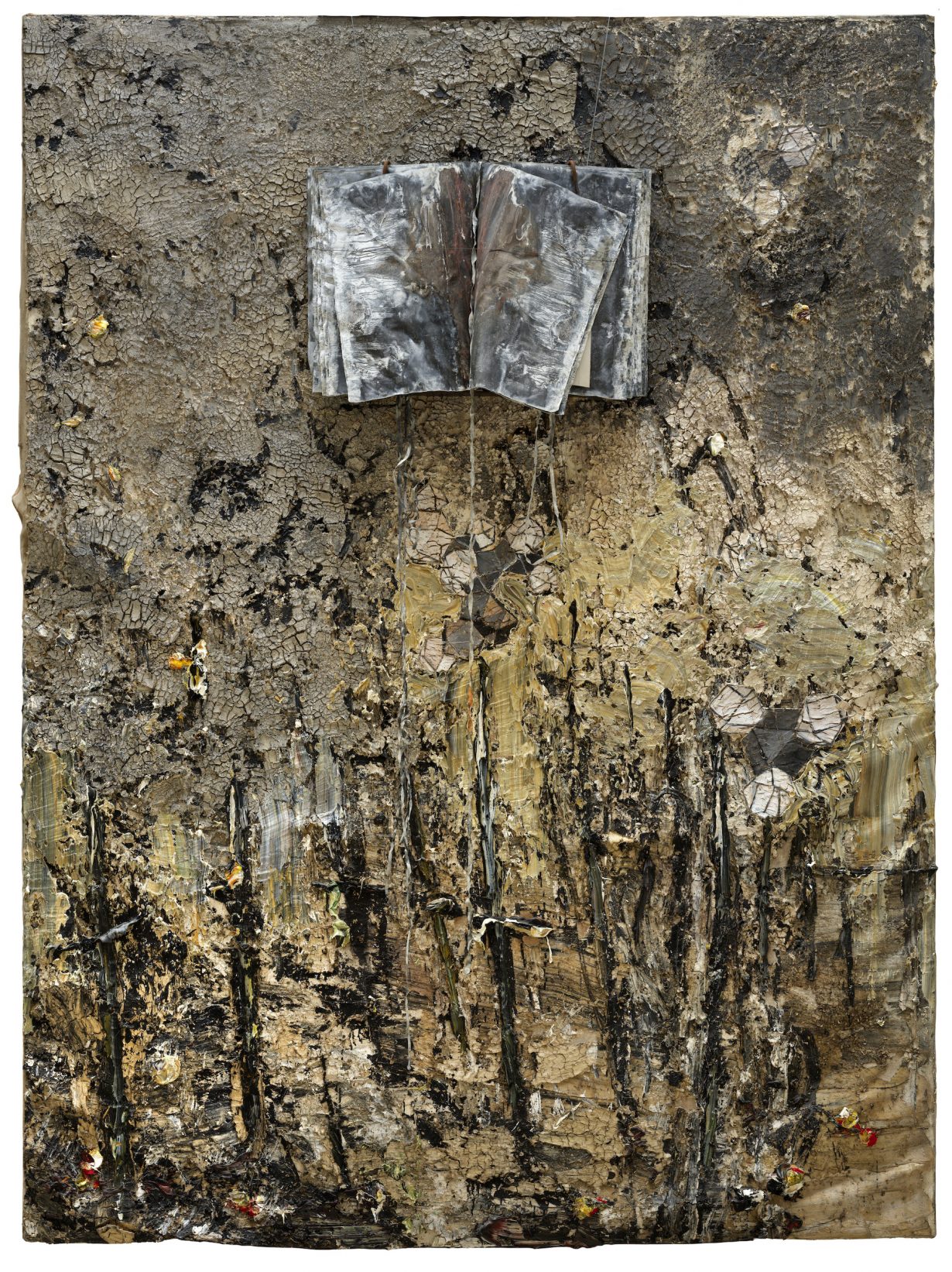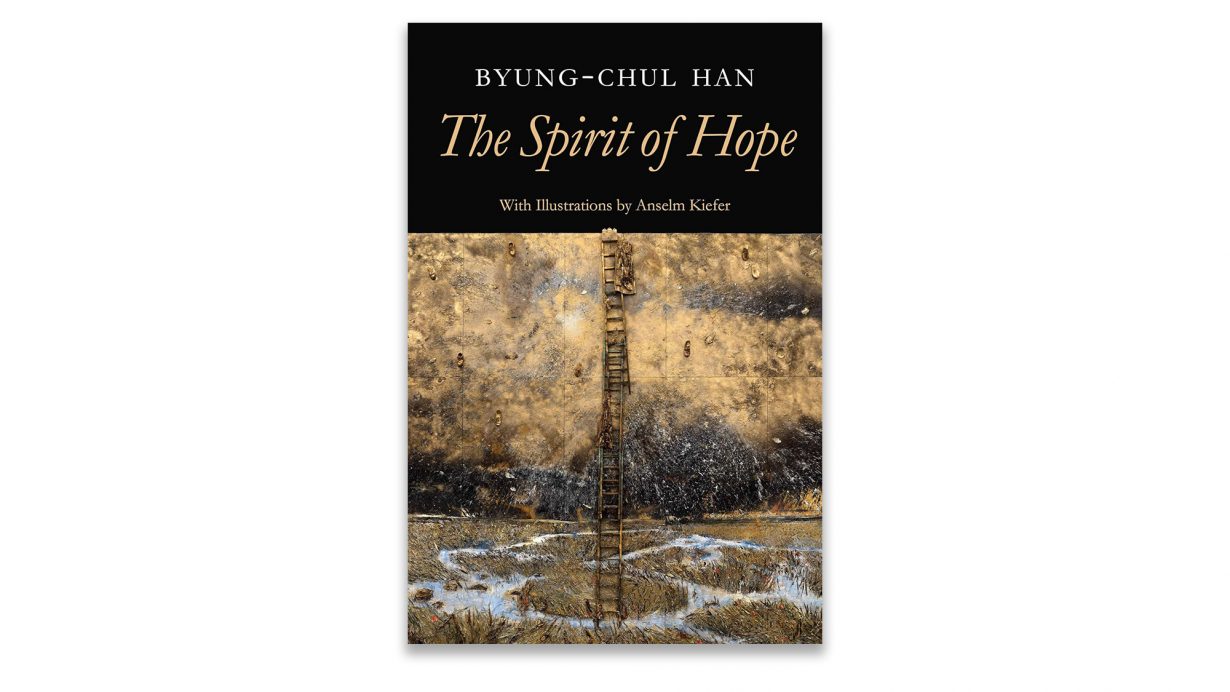The philosopher’s latest book – translated into English and illustrated by Anselm Kiefer – moves, surprisingly, into a more positive gear for our times

Burnout, depression, ADHD – not to mention the various ways in which we voluntarily enslave ourselves to capitalist culture by believing that we need, above all else, to be creative, productive citizens, all of the time: Byung-Chul Han’s reflections on these subjects have made him one of the most popular philosophers of the current era. That and a writing style that machine-guns aphorisms at a fully automatic rate (the perfect mode of thinking for the social media age, even if that age is one that Han frequently decries).
It is something of a surprise, then, to see the Berlin-based philosopher moving into a more positive gear with the latest of his books to be translated into English: a brief sermon on the benefits of hope. He does start off, though, by painting a bleak picture of our current times, suggesting that our society is founded on fear, whether of raging pandemics, all-out war or climate apocalypse. Still, the picture conjured by Han is not nearly as bleak as the dumbly lumpen accumulations of paint, straw and clay by Anselm Kiefer that decorate the book throughout (it’s never made clear why the illustrations have been included, the first of which Kiefer has dedicated to Han, though it’s presumably an effort to make his own work, by some sort of osmotic alchemy, seem ‘deep’). Han justifies his overriding tone of bummery by arguing that ‘the more hopeless the situation, the firmer the hope’. He arrives at the even more self-serving conclusion that only those who are negative can be hopeful. Hope, he contends, is the ability to imagine possible (rather than necessary) futures.

‘Poetry is a language of hope,’ he fires. ‘In the information society, language loses all auratic distance and becomes shallow information. Digital hyper-communication makes us speechless.’ That doesn’t stop Han presenting his own information, citing other people’s thoughts on hope as recorded in literature and philosophy, from Ingeborg Bachmann and Hannah Arendt to Franz Kafka and Gilles Deleuze, which in turn might alert you to the fact that, unlike some of his recent publications (notably Absence, 2023), the Korean-born philosopher’s focus here is exclusively on Western ideas. By buttressing his thoughts on the present by citing the past, Han plays a similar game to Kiefer, manufacturing authority by collaging himself in among ‘established’ wisdoms.
Han cartwheels through three centuries of (largely) hopeful (and mostly dead) thinkers across three breathless pages touching on Czech poet and dissident Václav Havel, German philosophers Walter Benjamin and Martin Heidegger, Romanian–French poet Paul Celan, Marxist thinker Ernst Bloch, German idealist Georg Wilhelm Friedrich Hegel, and the British philosopher and literary critic Terry Eagleton. Hope is a faith, a quasi-religious experience, as Han has it. And so on to Anselm of Canterbury (a Benedictine monk) and Martin Luther. Faith means trusting others, yet ‘in our narcissistic society, the movement of blood is, in fact, limited to the narrow circulation within our egos. It no longer flows out into the world.’ Resist! Trust! Hope is how society might be healed.
Along the way Han takes an unconvincing sideswipe at AI (thinking has a bodily dimension – the blood gets stirred, the flesh goosebumps – without which there can be no real knowledge) and a slightly more convincing big-up for art (more than making up for the Kiefer debacle). He quotes philosopher Theodor Adorno: ‘art is magic delivered from the lie of being truth’, implying that art has the capacity to embrace thought without limit, the kind of thinking that leads to hope, freed from the logic of a world that the philosopher has already established as being pretty shitty anyway. There’s just space left for Han to establish that, contrary to popular opinion (which has them all down as bores), philosophers are in fact great eroticists (in that they are lovers of truth), and to pick a quick fight with Heidegger, who was, according to Han, obsessed by death (the root cause of the world’s anxiety) when he should have been focused on birth (of new, hopeful ideas). All this leaves you wondering why Han has been so obsessed with accounting for ideas of the past when he claims to be addressing the present, via a boundless event horizon of hope.
The Spirit of Hope by Byung-Chul Han, translated by Daniel Steuer. Polity, £14.99 (hardcover)
From the November 2024 issue of ArtReview – get your copy.